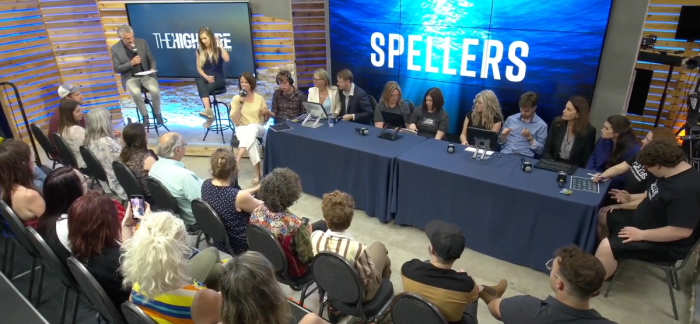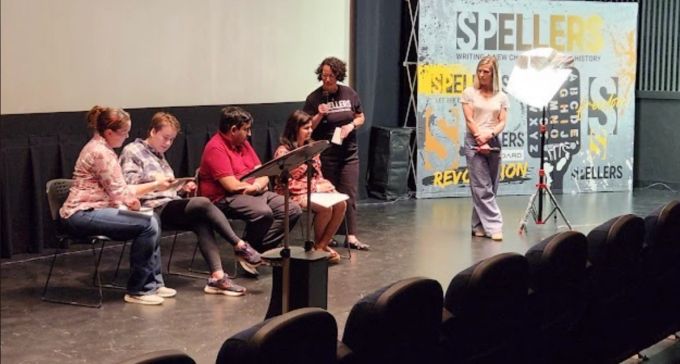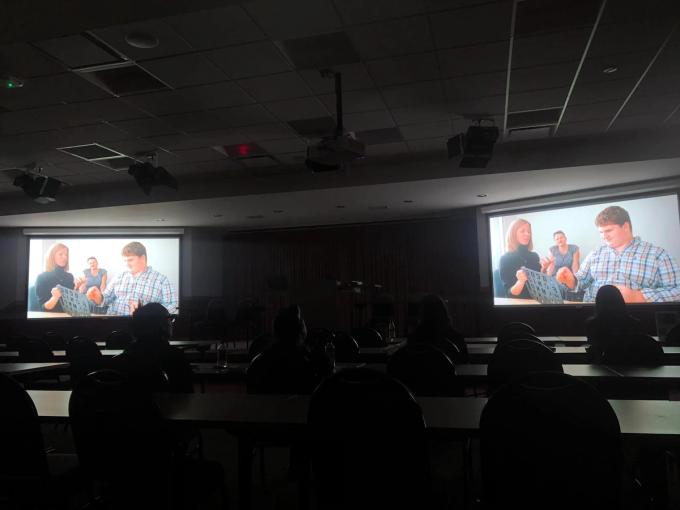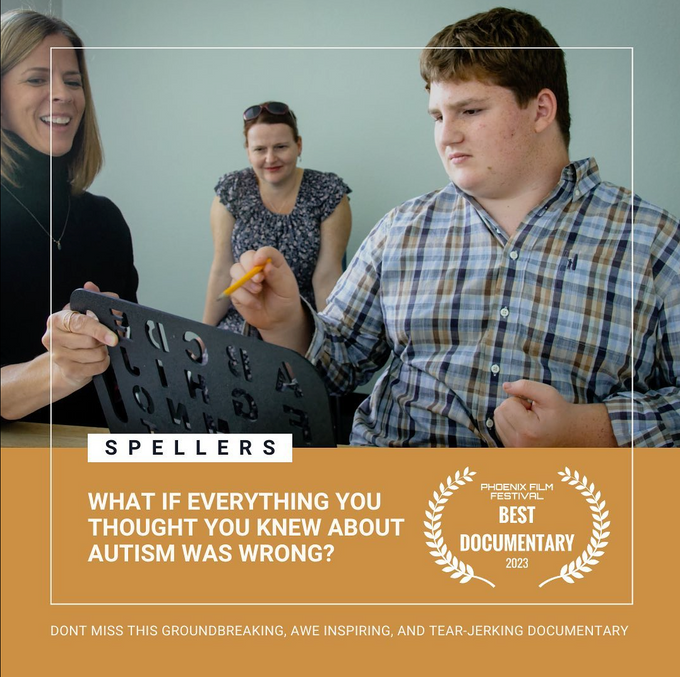How the Community Behind the Film 'Spellers' Made over $65k for Charity
Share

image from The Highwire
*This article was updated on August 9, 2023 to reflect the total amount raised, $65K up from the $37k originally reported.
This month our filmmaker focus is on JB Handley, producer of the documentary Spellers. Spellers has booked over 200 screenings, collected over 10k email addresses, and has net $37k for the Spellers Freedom Foundation so far through Kinema. We’ve witnessed the incredible spirit and organization of his team, and he’s kindly offered to share their strategy with you in 5 questions.
1. Spellers is a documentary based on a book, and the film has a foundation behind it, the Spellers Freedom Foundation. For context, tell us a bit about the team behind Spellers the film and the Spellers the screening tour.
My son Jamie and I wrote a book that was the inspiration for the movie. The person who deserves credit for making this film happen is our Director, Pat Notaro. He brought the team together who were able to take our story, expand it, and put it on film. Detain Graham was the lead on all the camera work, and Evan Rogers did an amazing job editing. My dear friend Mark Poff gave us a film score, and the iconic hip hop artist Swade wrote a song for the film. This group of creatives are responsible for the documentary, but the cast members and families that were willing to let these creatives into their lives are the reason this movie has resonated with so many.
Given our subject matter, we knew that showing this movie in communities was going to be the key to making a difference in the lives of non-speakers with autism. Communities would rally to support these unique individuals. But how do we show the movie in hundreds of different venues simultaneously? We knew we had the enthusiastic community to support these screenings, we needed to find the right platform to pull it off,

2. You had some film festivals on the table, but showing there would require you to push back the release date. Tell us about your film festival and initial distribution strategy, and why you ultimately chose to start the screening tour in April of 2023.
Film Festivals were very frustrating for us. It took forever to hear from them, they were very demanding in terms of having you and the cast attend, and their reach was actually very small. We could show the movie online and hundreds of thousands could watch immediately, or we could go to a festival and hundreds would watch…
Sure, great awards from prestigious festivals would help give the movie credibility, but we felt our film had a message that could change the life of a non-speaker TODAY if they watched it…could we really wait 12-18 months for our film to be in broad distribution? After winning the Best Documentary award at the first festival the film was showed at (Phoenix Film Festival), we decided to move on from the festivals and realize our primary goal: to show the movie to as many nonspeakers and their families as quickly as we could, which is why we switched to our host model using Kinema.

3. Let’s talk audience and screening hosts. We saw firsthand that you started communicating with screening hosts months in advance of your first screening event. Who was the desired audience for the film, and how did you build that initial list of potential screening hosts
There is already a community who are working with “Spellers”—nonspeaking people with autism who use letterboards and keyboards to communicate—and they are VERY enthusiastic. While this community is still small, there were people in every major market in the U.S, and they were the ones who volunteered to host screenings. Some are spelling instructors, most are parents of nonspeakers who are spelling.

4. Your screening hosts are incredibly engaged. One way you did so was through a Facebook group made just for screening hosts. What are some of the tactics or strategies that you employed to support and grow your screening hosts?
Our fist community was built on instagram. We were lucky in that we had a base of fans from the book my son and I wrote. We directed people to the movie website where we could capture emails. We used the email list to build hosts and then directed them to the Facebook group where they could get all their questions answered. Each host needs to know WHEN and HOW to organize their event. The more detail you give them, the easier you make it, the more people follow through and actually do it. If you have a high attrition rate between when someone volunteers and when they actually host the event, it’s your fault for not making it easy enough. That’s how we looked at it.
5. What advice would you give to filmmakers using Kinema?
Kinema removes a HUGE obstacle from this process: it gives you an elegant way to distribute your film broadly while still retaining digital rights. I would tell filmmakers that Kinema is a wonderful tool that will be much more explosive if you have a community dying to see your film. It’s still up to you to cultivate that audience. I think films shown together and in community are really, really special. So, if your film has fans, enthusiasts, or activists who care about the topic, you can use Kinema to turn the viewing experience into something really special.
